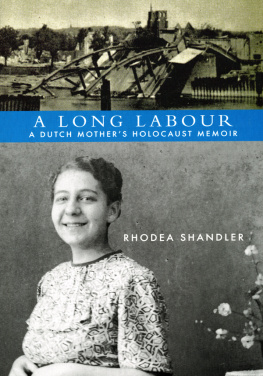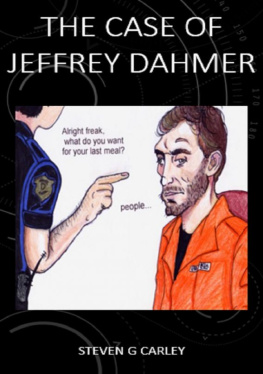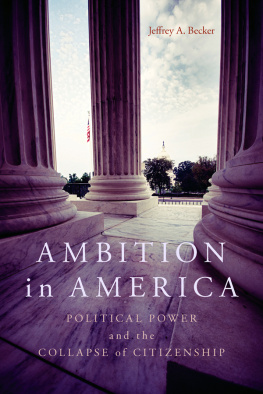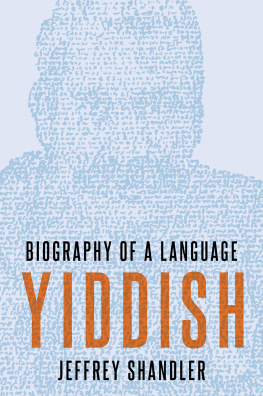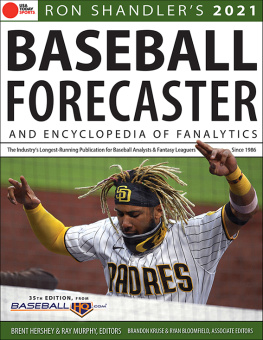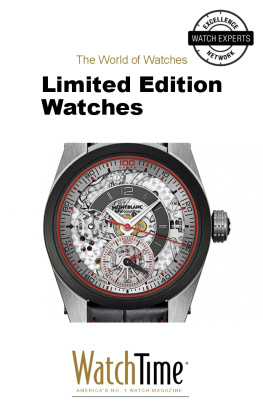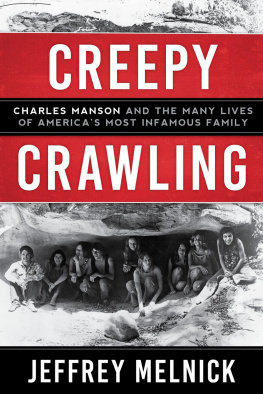Shandler Jeffrey - While America Watches
Here you can read online Shandler Jeffrey - While America Watches full text of the book (entire story) in english for free. Download pdf and epub, get meaning, cover and reviews about this ebook. year: 1999, publisher: Oxford University Press, Incorporated, genre: Romance novel. Description of the work, (preface) as well as reviews are available. Best literature library LitArk.com created for fans of good reading and offers a wide selection of genres:
Romance novel
Science fiction
Adventure
Detective
Science
History
Home and family
Prose
Art
Politics
Computer
Non-fiction
Religion
Business
Children
Humor
Choose a favorite category and find really read worthwhile books. Enjoy immersion in the world of imagination, feel the emotions of the characters or learn something new for yourself, make an fascinating discovery.

- Book:While America Watches
- Author:
- Publisher:Oxford University Press, Incorporated
- Genre:
- Year:1999
- Rating:4 / 5
- Favourites:Add to favourites
- Your mark:
- 80
- 1
- 2
- 3
- 4
- 5
While America Watches: summary, description and annotation
We offer to read an annotation, description, summary or preface (depends on what the author of the book "While America Watches" wrote himself). If you haven't found the necessary information about the book — write in the comments, we will try to find it.
While America Watches — read online for free the complete book (whole text) full work
Below is the text of the book, divided by pages. System saving the place of the last page read, allows you to conveniently read the book "While America Watches" online for free, without having to search again every time where you left off. Put a bookmark, and you can go to the page where you finished reading at any time.
Font size:
Interval:
Bookmark:
While America Watches
Televising the Holocaust
Jeffrey Shandler

Oxford University Press
Oxford New York
Athens Auckland Bangkok Bogot
Buenos Aires Calcutta Cape Town Chennai Dar es Salaam
Delhi Florence Hong Kong Istanbul Karachi
Kuala Lumpur Madrid Melbourne
Mexico City Mumbai Nairobi Paris So Paulo Singapore
Taipei Tokyo Toronto Warsaw
and associated companies in
Berlin Ibadan
Copyright 1999 by Jeffrey Shandler
Published by Oxford University Press, Inc.
198 Madison Avenue, New York, New York 10016
Oxford is a registered trademark of Oxford University Press, Inc.
All rights reserved. No part of this publication may be reproduced,
stored in a retrieval system, or transmitted, in any form or by any means,
electronic, mechanical, photocopying, recording, or otherwise,
without the prior permission of Oxford University Press.
Library of Congress Cataloging-in-Publication Data
Shandler, Jeffrey.
While America Watches : televising the Holocaust/
Jeffrey Shandler.
p. cm.
ISBN 019-5119355
1. Holocaust, Jewish (19391945), in televisionUnited States.
I. Title
PN1992.8.H63S\53 1999
791.45658dc21 984377
The author gratefully acknowledges permission for use of the following:
Chapter 1 is a revised version of material presented at a Yeshiva University conference in 1995, which will appear as an essay in the forthcoming volume Journalism and the Holocaust, edited by Robert Moses Shapiro, Yeshiva University Press.
Chapter 2 is a revised version of an article originally published in The Journal of Narrative and Life History 4, nos. 12 (1994).
Parts of Chapters 4 and 5 appear in an essay in The Americanization of the Holocaust, edited by Hilene Flanzbaum, The Johns Hopkins University Press.
1 3 5 7 9 8 6 4 2
Printed in the United States of America
on recycled acid-free paper
Writing this book proved a long and often surprising intellectual adventure. Among the most satisfying discoveries were that this project not only demanded long hours of work in solitude but also provided an unexpected wealth of opportunities to meet and learn from a great many people. It is a true pleasure to have this opportunity to express my thanks for their thoughtfulness, generosity, and kindness.
Several institutions provided much-appreciated support for this project. The research and writing of the doctoral dissertation on which this book is based were made possible thanks to grants from the Max Weinreich Center for Advanced Jewish Studies of the YIVO Institute for Jewish Research, the National Foundation for Jewish Culture, and the Center for Israel and Jewish Studies at Columbia University. I am also very grateful to the Koret Jewish Studies Publications Program and to the Lucius N. Littauer Foundation for their generous grants toward the research and production of this book.
I owe an inestimable debt to my teachers and mentors, both in the Yiddish studies program at Columbia University and at the YIVO Institutes Max Weinreich Center, particularly Adrienne Cooper, Marvin Herzog, and Jack Kugelmass. The training that I received at these institutions provided the foundation of my approach to the topic at hand. Yiddish dialectology, poems by Moyshe-Leyb Halpern, and folktales collected in East European shtetlekh may seem far removed from episodes of The Twilight Zone and nightly news telecasts. But the distinctive interdisciplinary approach to understanding Yiddish language, literature, and folkways as revealing artifacts of a diaspora communitys portable, vernacular culture, situated in a complex multicultural environment, has informed my analysis of Americas Holocaust television. This expansive approach to the principles of my training has been inspired by my work with Barbara Kirshenblatt-Gimblett, who supervised the writing of my dissertation, and to whom I offer especially heartfelt thanks. I consider myself most fortunate to have benefited from her exceptional intellectual vivacity and rigor, as well as from her unflagging commitment to my work, both during the dissertation process and beyond.
American Holocaust television is situated at a busy intersection of intellectual interests and approachesmedia studies, popular culture studies, and American studies, as well as the study of modern Jewish culture and memory culture. My work draws on the critical thinking of anthropologists, literary scholars, historians, sociologists, art historians, and linguists, as well as work in Holocaust studies, Jewish studies, communications, and culture studies. Throughout this interdisciplinary study I have had the good fortune to encounter a diverse group of scholars and professionals who generously offered their insights.
In the initial stages of planning my research, Herbert Gans, Larry Gross, and Annette Insdorf provided thoughtful advice. Deborah Dash Moores early guidance as well as her continued interest and support have been invaluable. During the years of research and writing the dissertation, I profited greatly from the assistance and suggestions of Raye Farr, Aryeh Goren, Iwona Irwin-Zarecka, Jenna Weissman Joselit, Elihu Katz, Marilyn Koolik, Edward Linenthal, Yosefa Loshitzky, Robert MacNeil, Peter Novick, John Osburn, Lucia Ruedenberg, James Shenton, Susan Slyomovics, Manfred Stanley, Aviva Weintraub, Liliane Weissberg, Brian Winston, Marjorie Wyler, and Barbie Zelizer. Thanks to Hanno Loewy of the Fritz Bauer Institut in Frankfurt am Main, I have been able to present my work to German audiences and discuss Holocaust remembrance with Cilly Kugelmann, Ronny Loewy, Thomas Mitscherlich, and Rainer Rother. I am grateful, too, to Hilene Flanzbaum, Tamara Liebes, and Robert Moses Shapiro for inviting me to publish portions of this work in volumes that they edited. At the conclusion of the dissertation process, Jeffrey Olick, Abraham Rosman, Michael Stanislawski, and James Young offered extremely helpful critiques and commentary as readers. Professor Youngs work on Holocaust literature, film, and memorials has been a particularly valuable inspiration, and I am most grateful for his suggestions and encouragement.
The transformation of the dissertation into a book was enhanced by advice and assistance from Gulie Arad, Omer Bartov, Robert Berger, Pamela Brumberg, Lucjan Dobroszycki, Laurence Douglas, Judith Keilbach, Alvin Rosenfeld, and Stuart Svonkin. I owe a special debt to Sara Bershtel for her invaluable and generously offered insights into reshaping the manuscript and honing its prose. During postdoctoral fellowships at the Annenberg School for Communication and the Center for Judaic Studies, both at the University of Pennsylvania, I benefited greatly from the special opportunities that these institutions provided for further research and reflection, as well as from the insights of fellows, colleagues, and students. As a Dorot Junior Teaching Fellow of the Skirball Department of Hebrew and Judaic Studies, New York University, I was able to complete the final stages of realizing this book. At Oxford University Press I have greatly enjoyed the commitment and insights of Andrew Albanese, Laura Brown, Susan Day, and Brandon Trissler. I am especially thankful to Susan for the enthusiasm, diligence, and thoughtfulness that she brought to the task.
This study would not have been feasible without the generous assistance given by archivists and other staff members of the following institutions: Wanda Bershen, Kim Bistrong, Alessandro Cavadini, Andrew Ingall, and Michael Paley (National Jewish Archive of Broadcasting of the Jewish Museum, New York); Gary Stern (Motion Picture, Sound, and Video Branch of the National Archives, Washington, D.C.); Toby Blum-Dobkin and Bonnie Gurewitsch (Museum of Jewish Heritage: A Living Memorial to the Holocaust, New York); Roberta Newman, Jenny Romaine, Henry Sapoznik, Eve Sicular, and Marek Web (YIVO Archives, New York); and Tim Hanson and Julie Miller (Ratner Center, Jewish Theological Seminary, New York). I am also grateful to the assistance provided by staff members of the Museum of Television and Radio, New York; the Media Center of the Board of Jewish Education of Greater New York; the Motion Picture, Broadcasting, and Recorded Sound Division of the Library of Congress, Washington, D.C.; and the University of California Los Angeles Film and Television Archive.
Next pageFont size:
Interval:
Bookmark:
Similar books «While America Watches»
Look at similar books to While America Watches. We have selected literature similar in name and meaning in the hope of providing readers with more options to find new, interesting, not yet read works.
Discussion, reviews of the book While America Watches and just readers' own opinions. Leave your comments, write what you think about the work, its meaning or the main characters. Specify what exactly you liked and what you didn't like, and why you think so.

